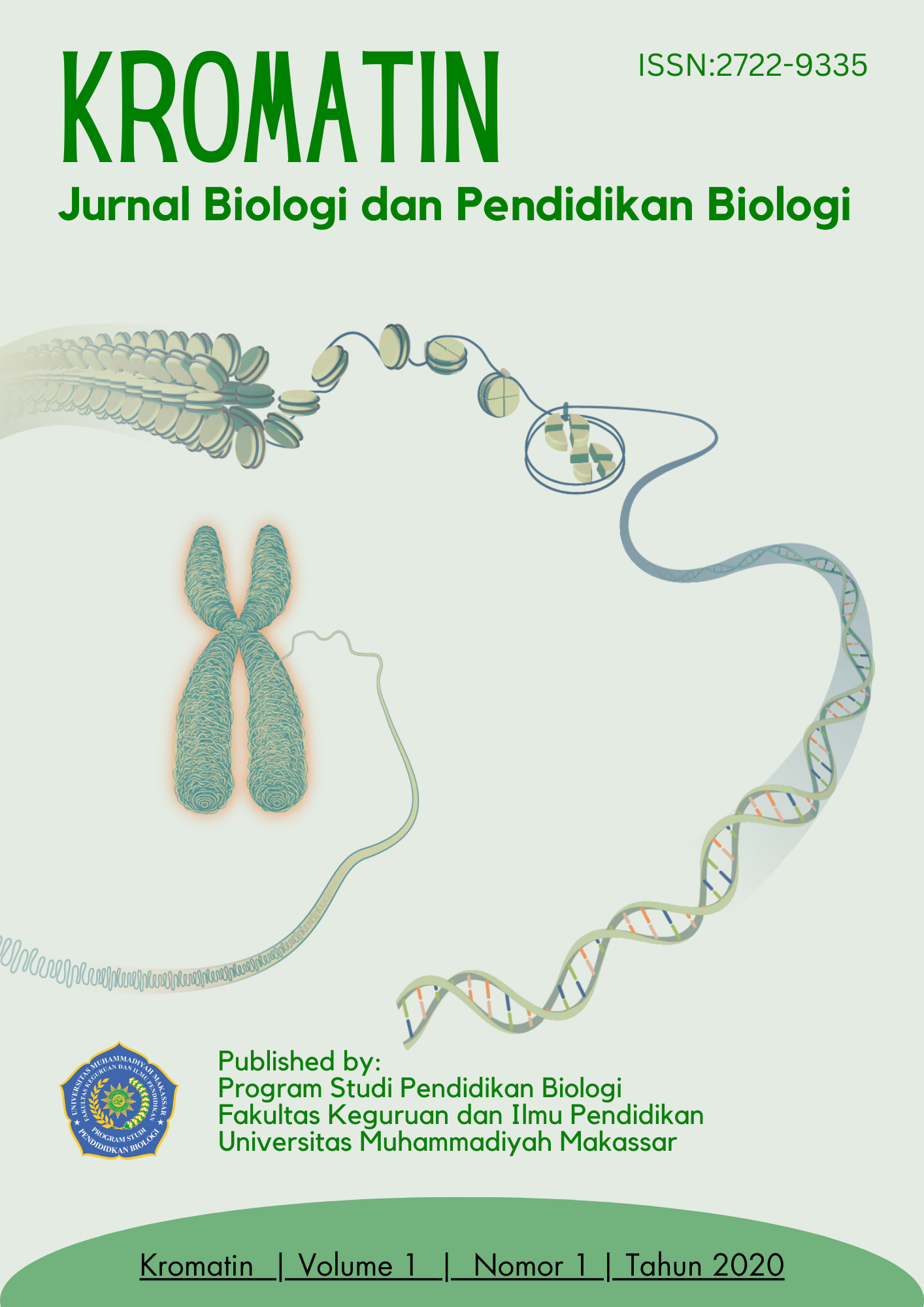Penerapan model pembelajaran kooperatif tipe jigsaw untuk meningkatkan hasil belajar dan aktivitas siswa
الملخص
This research is a classroom action research that aims to find out the improvement in biology learning outcomes of Grade VIII students through Jigsaw type cooperative learning methods. The research was carried out in November 2017 to January 2018 which is located at SMP Negeri 2 Sengkang, Wajo Regency. The subjects in this study were students of class VIII, amounting to 35 people consisting of 14 men and 21 women. This research was conducted in two cycles, each cycle consisting of 4 stages, namely the planning stage, the implementation phase of the action, the observation phase, and the reflection stage. Each cycle consists of two face-to-face meetings and one learning achievement test. The data collection technique was carried out by giving a test of learning outcomes at the end of the first cycle and cycle 2 meetings. The research data showed that the highest scores obtained by students of class VIII of Sengkang Middle School 2 who participated in Biology learning through a jigsaw cooperative model in cycle I were 84; lowest value of 45; and an average score of 62.97. The highest score obtained by eighth grade students of Sengkang Middle School 2 who took Biology learning through the type of jigsaw cooperative learning method in cycle II was 92; lowest value of 63; and an average value of 77.46. Based on the results of research that has been done, it can be concluded that after the second cycle there was an increase in student learning outcomes from the first cycle, where the average grade of students in the first cycle was 62.97 while in the second cycle increased to 77.46. Keywords: Cooperative, Jigsaw, learning outcomes, student activitiesالمراجع
Arikunto, S. 1993. Prosedur Penelitian. Jakarta: Rineka Cipta.
Buchari, M. 2000. Pendidikan Antisipatoris. Yogyakarta: Kanisius.
Djamarah, S.B. 2000. Guru dan Anak Didik dalam Interaksi Edukkooperatiff. Cetakan Pertama. Jakarta: Rineka Cipta.
Firdaus. 1996. Efektivitas Strategi Tuntas dalam Pencapaian Hasil Belajar Biologi. Skripsi FMIPA UNM. Ujung Pandang.
Hardjodipuro, S. 1997. Action Research. Jakarta: IKIP Jakarta.
Ibrahim, M. 2000. Pembelajaran Kooperatif. Pusat Sains UNESA. Surabaya: University Press.
Johnson, D.W., Johson, R.T., dan Halubec, E.J. 1993. Cooperatife in the Classroom (6th Ed). Edina, MN. Interaction Book Company.
Kaharuddin. 1992. Peranan Penggunaan Paket Belajar terhadap Pencapaian Hasil Belajar Fisika Siswa SMAN Cangadi Kabupaten Soppeng. Skripsi. FMIPA IKIP Ujung Pandang.
Lie, A. 2002. Cooperkooperatif Learning. Jakarta: Grasindo.
Nur, M. 2000. Pengajaran berpusat Kepada Siswa dan Pendekatan Kontruktifis dalam Pengajaran. Pusat Studi Biologi dan IPA Sekolah: Universitas Negeri Surabaya.
Samsiah. 1999. Efektivitas Pemberian Tes Tanya Jawab pada Setiap Akhir Pertemuan terhadap Pencapaian Hasil Belajar Fisika Siswa SMU Negeri 13. Skripsi. FMIPA IKIP Ujung Pandang.
Sudjana, N. 2001. Metode Statistik. Bandung: Tarsito.
Sudjana. 2003. Statistika untuk Penelitian. Bandung: CV.Alfabeta.
Suryabarata, S. 1983. Metodologi Penilitian. Jakarta: CV.Rajawali.
Suryosubroto, B. 1997. Strategi Belajar Mengajar di Sekolah. Edisi Pertama. Jakarta: Rineka Cipta.
التنزيلات
منشور
إصدار
القسم
الرخصة
Authors who publish with this journal agree to the following terms:
1. Authors retain copyright and grant the journal right of first publication with the work simultaneously licensed under a Creative Commons Attribution 4.0 Internasional License that allows others to share the work with an acknowledgement of the work's authorship and initial publication in this journal.
2. Authors are able to enter into separate, additional contractual arrangements for the non-exclusive distribution of the journal's published version of the work (e.g., post it to an institutional repository or publish it in a book), with an acknowledgement of its initial publication in this journal.
3. Authors are permitted and encouraged to post their work online (e.g., in institutional repositories or on their website) prior to and during the submission process, as it can lead to productive exchanges, as well as earlier and greater citation of published work.
Licence:
Authors are free to:
1. Share: Copy and redistribute the material in any medium or format
2. Adapt: Remix, transform, and build upon the material for any purpose, even commercially.
The licensor cannot revoke these freedoms as long as the authors follow the license terms, which include the following:
1. Attribution: Authors must give appropriate credit, provide a link to the license, and indicate if changes were made. Authors may do so in any reasonable manner, but not in any way that suggests the licensor endorses the authors or authors’ use.
2. No additional restrictions: Authors may not apply legal terms or technological measures that legally restrict others from doing anything the license permits.
This work is licensed under a licensed under a Creative Commons Attribution 4.0 Internasional License/ CC BY 4.0.


